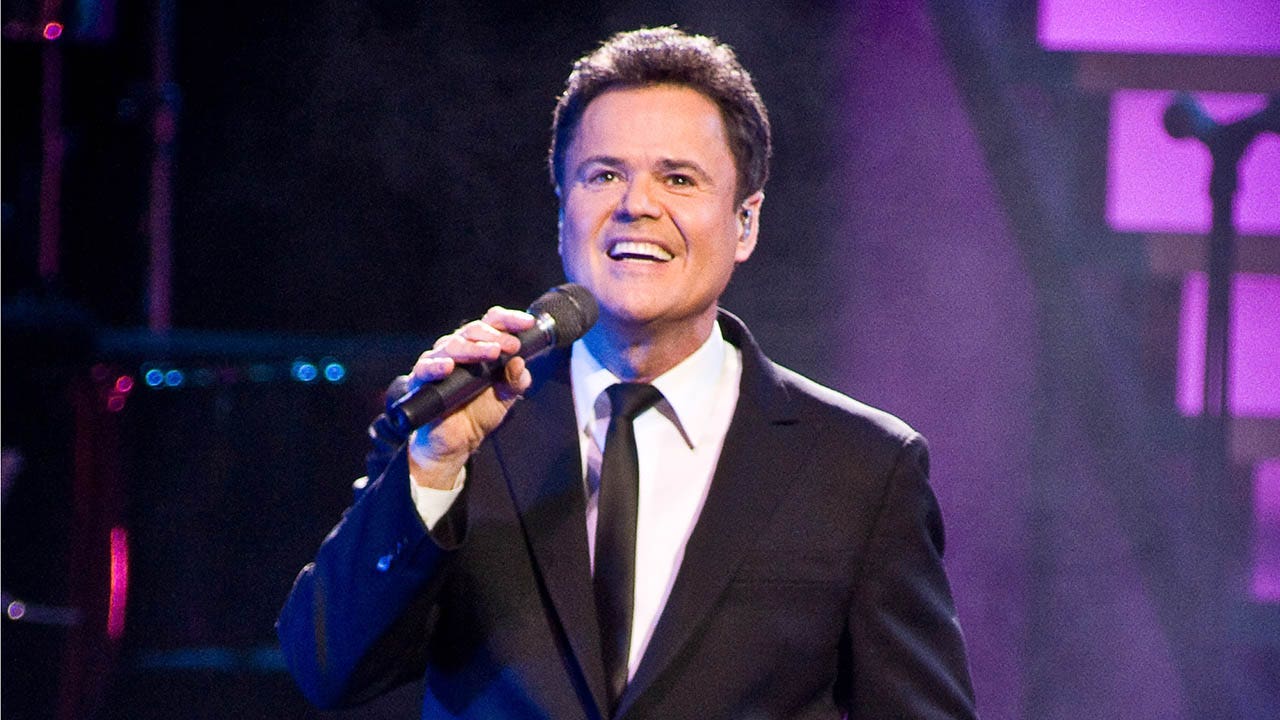Luke Bryan is celebrating new protections from artificial intelligence for musicians in Nashville.
Tennessee Gov. Bill Lee signed off on the legislation, dubbed the Ensuring Likeness, Voice, and Image Security Act, or “ELVIS Act” on Thursday.
Bryan was on hand to celebrate the occasion, which was held at the historic Broadway honky-tonk Robert’s Western World in Nashville, Tennessee.
“What an amazing precedent to set for the state of Tennessee,” Bryan told the crowd, per a statement from the Human Artistry Campaign. “The leaders of this are showing artists who are moving here following their dreams that our state protects what we work so hard for, and I personally want to thank all of our legislators and people who made this bill happen.”
Luke Bryan spoke during the signing of the ELVIS Act to Protect Voice & Likeness in Age of AI event at Robert’s Western World on March 21, 2024, in Nashville, Tennessee. (Jason Kempin/Getty Images for Human Artistry Campaign)
WHAT IS ARTIFICIAL INTELLIGENCE (AI)?
He continued, “It’s hard to wrap your head around what is going on with AI, but I know the ELVIS Act will help protect our voices.”
Tennessee is one of three states where name, photographs and likeness are considered a property right rather than a right of publicity, and the ELVIS act now adds vocal likeness to the list.
The bipartisan bill, which passed unanimously in the state General Assembly, also promises to create a new civil action by which people can be held liable if they publish or perform an individual’s voice without permission as well as use a technology to produce an artist’s name, photographs, voice or likeness without the proper authorization, according to the Associated Press.
“From Beale Street to Broadway, to Bristol and beyond, Tennessee is known for our rich artistic heritage that tells the story of our great state. As the technology landscape evolves with artificial intelligence, I thank the General Assembly for its partnership in creating legal protection for our best-in-class artists and songwriters,”Governor Bill Lee said at the signing.
From left, state Rep. William Lamberth, singer Luke Bryan, Tennessee Gov. Bill Lee, singer Chris Janson, Recording Industry Association of America CEO Mitch Glazier and state Sen. Jack Johnson attend the signing of the ELVIS Act on March 21, 2024. (Jason Kempin/Getty Images for Human Artistry Campaign)
‘ELVIS’ DIRECTOR SAYS HOLLYWOOD’S AI REGULATION IS ‘WAY BEHIND’
Artificial intelligence was a huge issue in last year’s Hollywood strikes, and SAG-AFTRA National Executive Director and Chief Negotiator Duncan Crabtree-Ireland praised the bill’s passing as well.
“SAG-AFTRA applauds Governor Lee for leading the nation in instituting meaningful protections against the misappropriation of voice and likeness by artificial intelligence,” Crabtree-Ireland said in a statement.
He continued, “We hope this legislation will serve as a model for policymakers across the country and offer the support of our members who work across the music, television, film, broadcast and video game industries. SAG-AFTRA is focused on protecting its members’ images, voices, and likenesses from being replicated by AI without their informed consent and fair compensation. The ELVIS Act is an important step in this direction.”
Naming the legislation the ELVIS Act is fitting, given the prevalence of unauthorized usage of Elvis Presley’s likeness following his death.
Elvis Presley’s likeness faced a lot of unauthorized use until Tennessee passed legislation in 1984 ensuring that personality rights don’t stop at death. (Fotos International/Getty Images)
CLICK HERE TO SIGN UP FOR THE ENTERTAINMENT NEWSLETTER
In 1984, the Tennessee Legislature passed the Personal Rights Protection Act, which ensured that personality rights do not stop at death and can be passed down to others. It states that “the individual rights … constitute property rights and are freely assignable and licensable, and do not expire upon the death of the individual so protected.”
Similar AI legislation is being debated in Congress as well.
In February, musician and “Yellowstone” star Lainey Wilson testified at a House Judiciary subcommittee about her experience as a “victim” of AI.
“I use my music and my voice to tell stories, to connect to my fans and to help them to connect to each other. My art is uniquely and literally me, my name, my likeness, my voice,” Wilson said.”I do not have to tellyou how much of a gut punch it is to have your name, your likeness or your voice ripped from you and used in ways that you could never imagine or would never allow. It is wrong, plain and simple.”
Lainey Wilson testified at a congressional subcommittee about being a “victim” of AI in February. (Neilson Barnard/Getty Images for The Recording Academy)
“It is a personal violation that threatens a person’s dignity and can put at risk everything that they have worked so hard to accomplish,” she continued. “An artist’s voice and likeness are their property and should not take a back seat to the economic interest of companies that have not invested in or partnered with the artist.”
While Wilson spoke mostly about the experience of music artists and AI-generated materials, she also touched on how AI has affected everyone, not just celebrities.
“It’s not just artists who need protection, and the fans need it, too. It’s needed for high school girls who have experiencedlife-altering deepfake pornusing their faces. For elderly citizens convinced to hand over their life savings by a vocal clone of their grandchild in trouble, AI increasingly affects every single one of us, and I’m so grateful that you are considering taking action to ensure that these tools are used in a responsible way.”
The Associated Press contributed to this report.




